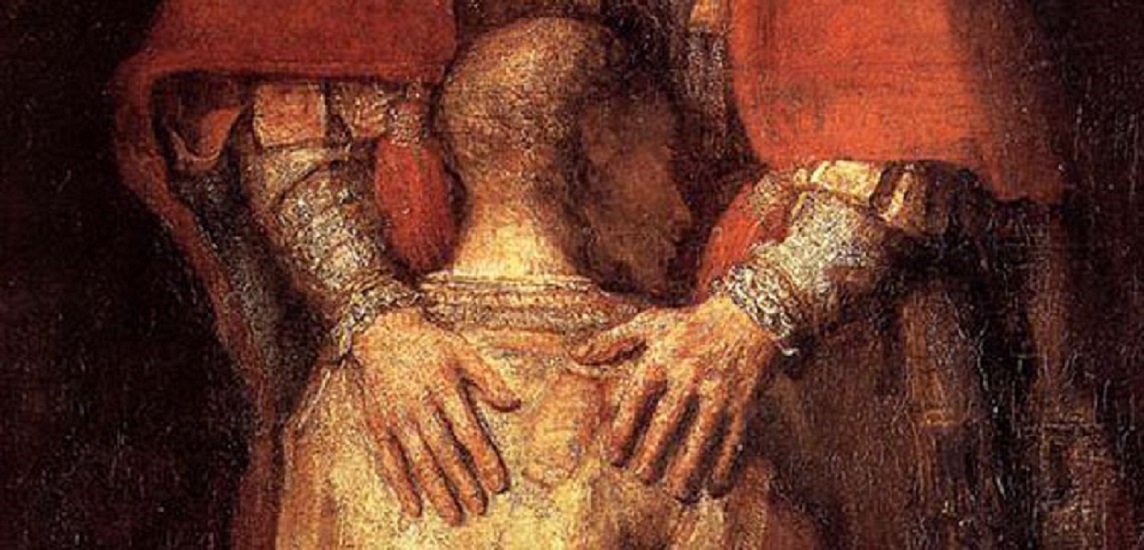As a Church, we continue to celebrate the Year of Mercy. What a blessing this year has been to so many of us: a time to reconcile, a time to find peace within ourselves and with God. Pope Francis continues to use the theme of mercy to teach us about the ways of God, our Father.
This past Sunday, in the pope’s Angelus address, he spoke of the parable of the prodigal son.
Pope Francis said that what is most striking about the parable of the prodigal son is not the sad story of a young man who left his father and fell into sin, but his decision to “arise” and go to his father.
“The way back home is the way of hope and new life. God awaits to forgive us out on the road, waiting for us patiently, he sees us when we are still far away, he runs towards us, embraces us, forgives us. So is God! So is our Father! And his pardon erases the past and regenerates us in love,” the Pope said.
“When we sinners convert,” he continued, “we do not find God waiting for us with reproaches and hardness, because God saves, he gathers us home with joy and partying.”
Still, we all know how hard it is to make that decision to “arise” and ask forgiveness. We want to, but we are afraid. What if we are not met with open arms and joy? What if our Father is still angry with us? What if we are just too far gone to ever get back home?
The Christian band, Casting Crowns, answers this last question in their newest song, “One Step Away.” The song reminds us that no matter how far we have traveled, how big a mistake we may have made, we are still only one step away from our Father’s forgiveness.
It doesn’t matter how far you’ve gone
Mercy says you don’t have to keep running down the road you’re on
Love’s never met a lost cause
“Love’s never met a lost cause.” Every one of us has spent some time thinking we are a lost cause. Whether it is because of our own sin and arrogance, a loss in our life that we can’t seem to get over, or the pain and hurt we’ve felt when we are betrayed by someone we love, we’ve all said to ourselves, “This is a lost cause.”
But God has never met a lost cause. He has never looked at any of his children and thoughts, “There is not hope there.” No, God is nothing but hope, love, mercy … and he is always willing to forgive and gather us home.




